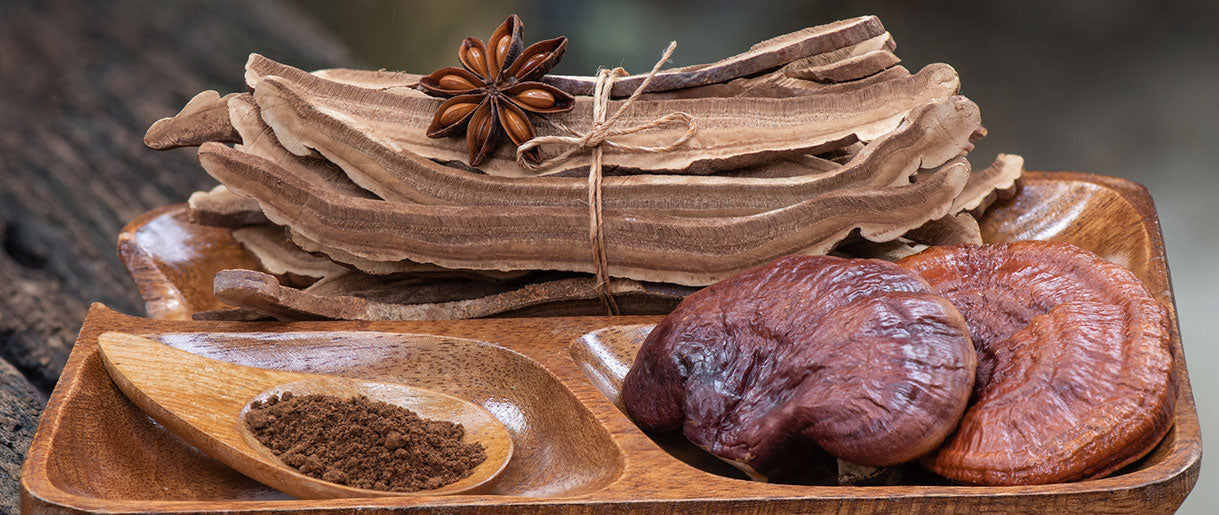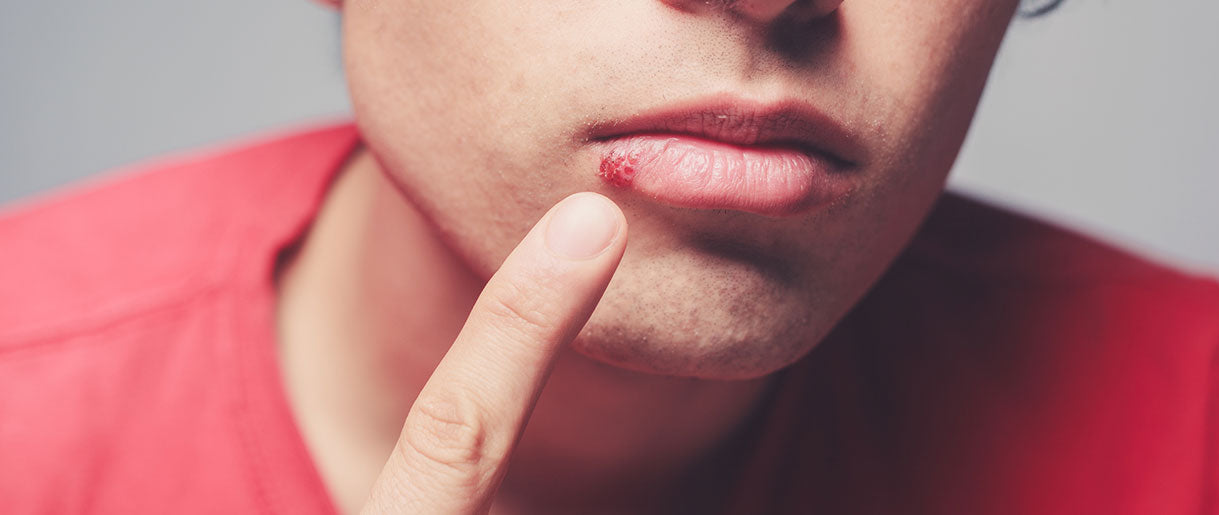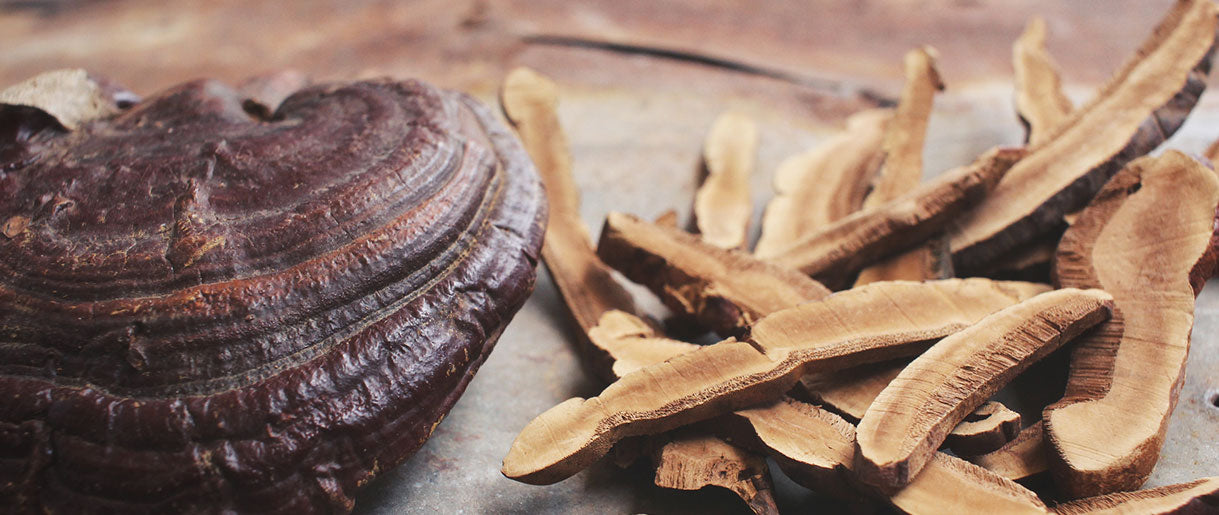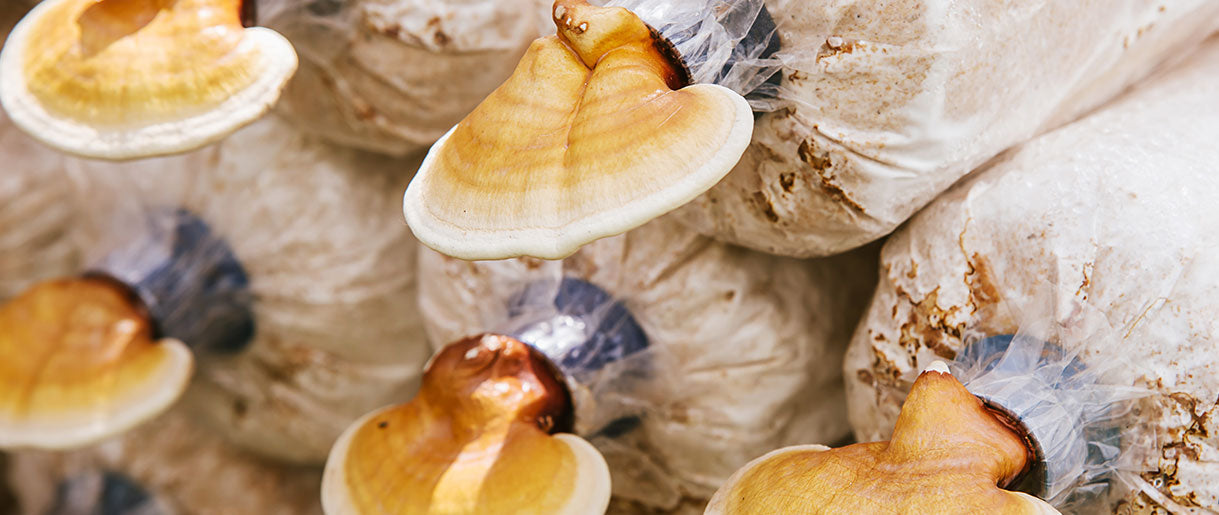The recommended dosage of Reishi mushrooms can vary depending on their form. For powdered Reishi mushrooms, the typical dosage is between 1 to 1.5 grams per day. If you're consuming Reishi in a capsule form, taking 2-6 grams per day is usually recommended. Reishi mushroom extract is often consumed at a dosage of 1-1.5 grams per day, while a typical serving of Reishi tea is made from 1-2 grams of dried mushroom.
Remember, these are general guidelines, and individual needs may vary. Age, health status, and individual tolerance can affect the appropriate dosage. Therefore, always consult a healthcare provider before starting any new supplement regimen, including Reishi mushrooms, to ensure safety and efficacy.
Renowned for its various health benefits, the Reishi mushroom has made its way into the daily routine of many health-conscious individuals worldwide. This 'mushroom of immortality,' as it is often referred to in ancient Chinese texts, has been linked to numerous potential benefits, including boosting immune health, managing stress and fatigue, and even exhibiting potential anti-cancer properties.
Navigating the world of health supplements can be a daunting task, especially when it comes to understanding dosages. This article aims to guide you through understanding the appropriate dosage of Reishi mushrooms depending on factors such as the form of Reishi you're taking, your health status, and other considerations. Let's explore the fascinating world of Reishi mushrooms and their appropriate dosages to help you make informed decisions about your health.
What are Reishi Mushrooms?

A Glimpse into the History and Origin of the Reishi Mushroom
The Reishi mushroom, scientifically known as Ganoderma lucidum, holds a special place in Eastern medicine. Often referred to as the "mushroom of immortality," the Reishi mushroom has been used in traditional Chinese medicine for over 2,000 years.
With its shiny, varnished appearance, the Chinese medicinal mushroom earned its fame due to its myriad health benefits. Known as a bitter mushroom due to its taste, Ganoderma lucidum was a prized possession, symbolizing well-being and longevity.
Exploring the Different Types of Ganoderma Lucidum Mushrooms
There are several types of Reishi mushroom look-alikes and species, each with unique characteristics. The most commonly known is the Ganoderma lucidum mushroom.
Other types include Ganoderma tsugae, which grows on hemlock trees, and Ganoderma applanatum. Despite their differences, all types of Reishi mushrooms are considered functional mushrooms, renowned for their medicinal properties.
From Traditional to Modern Use: The Journey of the Reishi Mushroom
Historically, this medicinal mushroom was used in mushroom teas and herbal medicine, primarily in Asia. With the rise of modern science, the properties of the Reishi mushroom have been subjected to extensive study, bringing this ancient Eastern medicine to the forefront of Western wellness trends.
Today, Reishi mushrooms are consumed worldwide, often in supplements approved by the Food and Drug Administration (FDA). They have become integral to many individuals' wellness routines due to their potential health benefits.
As the regulatory body for food and drugs in the U.S., the FDA classifies Reishi mushrooms as a dietary supplement. However, it's important to note that while the Food and Drug Administration regulates these products, they are not approved to diagnose, treat, cure, or prevent any disease.
Unlocking the Health Benefits of Reishi Mushrooms

The Immune System and Reishi Mushrooms: A Powerful Pair
One of the most notable benefits of Reishi is its potential to bolster the immune system. Reishi mushrooms are rich in bioactive polysaccharides; compounds believed to enhance immune functions.
They may help increase the activity of white blood cells, also known as the body's natural killer cells, which play a crucial role in fighting infections and diseases. This amazing health benefit is why Reishi mushrooms are a staple in traditional medicine practices.
Potential Anti-Cancer Properties: How Reishi May Help in Fighting Cancer
Reishi mushrooms may also possess potent anti-cancer properties. Certain compounds found in Reishi mushrooms can lead to the death of cancer cells, making Reishi for cancer treatment a subject of ongoing research.
Preliminary studies suggest that(1) Reishi mushrooms may be effective in breast cancer prevention. However, more rigorous scientific studies are needed to confirm these findings and understand the full extent of Reishi's role in fighting cancer.
Regulating Blood Sugar: The Role of Reishi in Diabetes Management
In managing blood sugar, the benefits of Reishi may come into play. Studies have suggested(2) that Reishi mushrooms may help lower blood sugar levels, thus implying a potential role for Reishi in diabetes management. By helping to regulate blood sugar, Reishi mushrooms may aid in reducing cardiovascular risk factors associated with high blood sugar.
Combatting Stress and Fatigue: Reishi Mushrooms to the Rescue
Chronic fatigue syndrome and excessive stress can severely impact the quality of life. Here again, Reishi mushrooms may offer a beacon of hope. The adaptogenic properties of these medicinal mushrooms help the body manage stress better and combat fatigue, thereby improving overall well-being.
Exploring Other Potential Health Benefits of Reishi
Several other potential health benefits of Reishi are worth exploring. For instance, Reishi mushrooms may benefit blood pressure, helping to manage both high and low blood pressure. Furthermore, the potential benefits of Reishi extend to liver health, with some research suggesting it may aid in treating liver disease.
Decoding Reishi Mushroom Dosage: An Essential Guide

Dosage Variation Based on Reishi Form
Understanding the Reishi mushroom dosage begins with recognizing that it can vary based on the form you're consuming—powder, capsule, extract, or tea.
The Reishi mushroom powder dosage ranges from 1 to 1.5 grams per day. If you're taking Reishi in capsule form, the recommended dosage is 2-6 grams daily, depending on the concentration.
Reishi mushroom extract dosage—often a more concentrated form—is generally 1-1.5 grams daily. If you're a fan of Reishi mushroom tea, a typical serving is made from 1-2 grams of dried mushroom. Reishi Mushroom Tincture Dosage depends on the concentration, but a general guideline is 1-2 ml, 1-3 times daily. This dosage can also work for the Ganoderma lucidum polysaccharide extract.
Now, let's delve into the general guidelines for dosage based on specific applications.
Guidelines for Reishi Dosage Based on Purpose
Reishi Mushroom Dosage for Sleep
Reishi mushrooms have calming properties—which results in the Reishi sleep benefits. 1 to 1.5 grams of Reishi powder before bedtime can improve sleep quality.
Reishi Mushroom Cancer Dosage
Some studies have suggested dosages up to 5-10 grams per day of Reishi extract for potential anti-cancer benefits. However, always consult a healthcare professional before using Reishi for this purpose.
Reishi Mushroom for Dogs Dosage
For canine companions, the dosage depends on the dog's weight, with a general guideline of 100-200mg per kg of body weight of a Reishi mushroom supplement. Our detailed guide explores the Reishi benefits for dogs.
Reishi Mushroom Dosage for Weight Loss
For weight management, a suggested dosage could be 1.5-2 grams of Reishi extract daily, combined with a balanced diet and regular exercise. Always consult a healthcare professional before using Reishi for weight loss.
Personal Dosage: It's All About Individual Needs
The factors influencing your dosage of Reishi include age, current health conditions, and individual tolerance. For example, a compromised immune function might require a different Reishi dosage than a healthy individual. As with all dietary supplements, it's important to consult a healthcare provider to determine the recommended Reishi mushroom dosage for your needs.
Precautions and Possible Side Effects
While the Reishi mushroom appears well-tolerated by most individuals, some may experience side effects such as digestive upset, dizziness, and skin rashes. Due to Reishi's potential effects on blood sugar control, individuals with diabetes should exercise caution when taking Reishi mushrooms.
Reishi may also affect blood clotting—for this reason, people with bleeding disorders should exercise caution as too much of the mushroom can increase the risk of bleeding. People with upcoming surgery should avoid reishi mushrooms for at least two weeks in advance to reduce the risk of excessive bleeding during surgery.
Bringing Reishi Into Your Daily Routine: A Comprehensive Guide

Spicing Up Your Meals and Beverages with Reishi
As one of the most renowned medicinal mushrooms, Reishi can be a valuable addition to your daily dietary routine. One of the simplest ways to incorporate Reishi is by adding it to your meals and drinks.
Reishi powder is versatile and can be mixed into smoothies, brewed into mushroom coffee, or even sprinkled on salads or soups. It imparts a slightly bitter taste, which can be balanced with other dishes' flavors.
Supplementing Your Diet with Reishi
Another popular method is Reishi mushroom supplements, which are available as capsules and powders. These are a convenient way to ensure a consistent dosage of Reishi, particularly if you want to enhance your immune system.
Whether it's a Ganoderma Lucidum extract capsule or Reishi mushroom powder, these supplements can easily be incorporated into your daily routine. It's always a good practice to check the label for additional ingredients and ensure you're getting a quality product.
Reishi Tea: Embracing Tradition with a Healthy Brew
Reishi tea might be your perfect match if you prefer a more traditional approach. This method involves steeping dried Reishi mushrooms or mushroom powder in hot water to extract their beneficial compounds.
Although Reishi tea has a distinct bitter taste, adding honey or a slice of lemon can make it more palatable. Brewing and sipping Reishi tea can be a calming experience, aligning perfectly with its stress-reducing benefits.
Timing Your Reishi Intake for Maximum Impact
When it comes to the best time to consume mushrooms like Reishi, it often boils down to personal preference and the specific health benefits you seek. Some people prefer to take Reishi in the morning for an immune boost throughout the day. Others might consume Reishi before bedtime, capitalizing on its potential to improve sleep quality. In any case, it's advisable to follow the recommended dosage instructions on the packaging or seek advice from a healthcare professional.
Reishi Mushroom Dosage Video
FAQs About Reishi Mushroom Dosage
Can You Take Reishi Mushrooms Daily?
Yes, Reishi mushrooms can be taken daily. They are often consumed as a dietary supplement for potential health benefits, such as boosting the immune system and reducing stress.
However, the daily dosage can depend on factors like the form of Reishi (powder, capsule, tea) and your health goals or conditions. It is always recommended to follow the product packaging dosage instructions or consult a healthcare provider to determine the best regimen for you.
What Is The Maximum Safe Dosage Of Reishi Mushrooms?
The maximum safe dosage of Reishi mushrooms can vary depending on individual health conditions and the form of consumption. Generally, up to 1.5 grams of Reishi extract or powder daily is considered safe for most healthy individuals.
However, higher dosages have been used in some studies for specific uses, such as potential anti-cancer benefits. It's always essential to consult with a healthcare professional before starting a regimen, especially at higher dosages.
Are There Any Interactions With Other Medications Or Supplements?
Yes, Reishi mushrooms may interact with certain medications and supplements. For example, due to its potential effects on blood sugar and blood pressure, Reishi might interact with diabetes or blood pressure drugs.
It may also affect the way the liver processes certain drugs. If you are currently on any medication, discussing it with a healthcare provider before incorporating Reishi into your routine is highly recommended.
Are there any special considerations for certain groups of people (pregnant women, elderly, etc.)?
Yes, certain groups should exercise caution with Reishi mushrooms. Although Reishi is generally considered safe, pregnant or breastfeeding women are advised to avoid its use due to limited research on its effects in these populations.
Additionally, elderly individuals or those with a compromised immune system should consult a healthcare provider before starting Reishi, as it may interact with other medications or health conditions. It's always best to seek professional medical advice when considering any new supplement regimen.
Key Takeaways
Proper dosage, we've seen, is critical when it comes to maximizing the benefits of Reishi. Whether consumed as a powder, capsule, extract, or tea, it's important to follow dosage guidelines tailored to the specific form of Reishi and its intended purpose. Dosage can range from 1 to 1.5 grams for sleep to as high as 5-10 grams for potential anti-cancer benefits, with special dosage considerations for our canine companions.
Nonetheless, we must emphasize that despite its many possible benefits, Reishi should be taken responsibly, and any new supplement regimen should always be discussed with a healthcare provider. This is especially pertinent for those with underlying health conditions, are on other medications, or belong to vulnerable groups like pregnant women.
So, whether you're considering adding Reishi mushroom extracts to your meals, sipping it in your tea, or taking a supplement, we hope this guide has provided valuable insights. Remember, your health is your wealth, and informed decisions are the cornerstone of wellness.
We'd love to hear your thoughts or experiences with Reishi mushrooms. Feel free to leave a comment below to join the conversation. Here's to your health!
References
- Anti-Tumor Effects of Ganoderma lucidum (Reishi) in Inflammatory Breast Cancer in In Vivo and In Vitro Models, (1)https://www.ncbi.nlm.nih.gov/pmc/articles/PMC3585368/
- Mushrooms of the Genus Ganoderma Used to Treat Diabetes and Insulin Resistance, (2)https://www.ncbi.nlm.nih.gov/pmc/articles/PMC6891282/









Let Us Know Your Comments